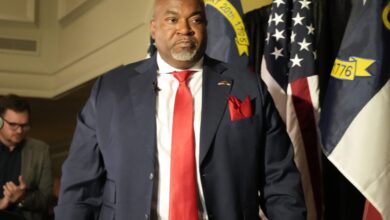Telegram’s financial future in doubt as director faces criminal investigation
Telegram’s hopes of a lucrative IPO within two years have been hit by criminal charges against the messaging app’s chief executive, as the company’s bondholders suffered huge losses in the events of the past few days.
Pavel Durov facing a series of preliminary charges in France over allegations that Telegram failed to tackle crime on the app, including one case that could be punishable by up to 10 years in prison.
The Russian-born billionaire, now a French-UAE citizen, has been released on bail but is currently banned from leaving France.
The development is a disaster for Dubai-based Telegram and its elusive CEO, who has been trying to expand the business before can be listed on the stock market in 2026.
Durov has stepped up monetization efforts, introducing new subscription packages and advertising services aimed at becoming “financially self-sustaining.”
Telegram’s 2023 financial report, seen by the Financial Times and not previously reported, shows the company had revenue of $342 million last year with an operating loss of $108 million. The total loss was about $173 million after tax.
Durov speak The Financial Times reported in March that he was pressing ahead with plans for an IPO after turning down potential investors who he said had offered a valuation of “more than $30 billion” for the Dubai-based company.
But experts warn that any listing would struggle if advertisers prove reluctant to spend money on a platform that is already linked to alleged child sexual abuse material. “Then you’re left with cryptocurrency scams and quick-fix weight loss ads,” said one person familiar with the business.
Telegram is wholly owned by Durov, who holds a multibillion-dollar crypto fortune, but the company has raised about $2.4 billion in debt financing that matures in 2026.
This includes $1 billion bond offering in 2021 where Abu Dhabi state funds were among the investors. Most recently, $330 million was secured earlier this year in an issue that Durov said was oversubscribed.
According to the company’s 2023 financial report, Durov personally purchased at least $64 million in Telegram bonds, as part of what he once described as investing “hundreds of millions of dollars” in Telegram’s development.
Telegram’s bond price has fallen nearly 10 percentage points, trading at about 87 cents on the dollar, yielding more than 16 percent, down from about 96 cents before he was arrested on Saturday after landing at an airport outside Paris on a private jet.

Under the terms, Telegram bondholders will be able to convert their senior unsecured debt into equity at a discount to Telegram’s IPO price if the listing occurs before the end of March 2026 — an incentive for the company to list before that date.
“Would investors buy into an IPO if they weren’t sure whether Telegram would [a] pariah? I’m not sure. Bond investors will face the same dilemma,” said one bond holder, adding that private equity investors could seize the opportunity to buy the company at a discount. “In either case, I don’t expect the bonds to recover quickly.”
One bondholder said they had not received any communication from Telegram after news of the arrest broke.
The company has close ties to Toncoin, a cryptocurrency originally developed by the Telegram team and attracting many Russian individual and institutional investors, among others.
In 2023, Telegram’s financial losses were partially offset by the appreciation of the digital assets it held on its balance sheet, which totaled nearly $400 million that year. Meanwhile, in 2024, the company also sold Toncoins for more than $244 million in cash, financial documents show.
However, the company’s digital assets were affected by the arrest in France, with Toncoin’s trading value dropping by nearly 20 percent after the news broke.
Going forward, it remains unclear how Durov will continue to operate the platform, or whether that task will fall to a small group of loyal lieutenants at a company known for its cult-like culture.
The company has only about 50 employees, including 30 rigorously vetted engineers, Durov said. He said he selected his team by holding programming competitions and then trying to attract the winners, adding that they are mostly programmers from Ukraine.
One person familiar with the matter described employees as typically “super young,” recruited from Eastern Europe, paid annual salaries of half a million dollars and regularly posting pictures of their Porsches on social media.
“There is practically no disruption,” Durov told the FT earlier this year. “They share the same values and believe in the mission of the company.”
He is central to the decision-making process, describing the pace of innovation as being akin to a startup despite having nearly 1 billion users. “I don’t like to think of myself as a co-CEO or an owner or anything. I like to think of myself as a product lead,” he says. “No feature is launched without my deep involvement.”
Aleksandra Urman, a researcher at the University of Zurich and an expert on social media, said the centralized leadership style raises questions about “whether Telegram can survive without Pavel.”
Durov has long been a supporter a “hands-off” approach to moderation in the name of free speech and libertarian ideals. Telegram says on its website that it has disclosed “0 bytes of user data to third parties, including governments” as a point of principle.
The company did not immediately issue a statement after the allegations were made or respond to a request for comment for this story.
Following Durov’s initial arrest, the company said he had “nothing to hide,” adding that “it is absurd to claim that a platform or its owners are responsible for abuse of that platform” and that its moderation practices “follow industry standards.”
Additional reporting by Adrienne Klasa in Paris, Ahmed Al Omran in Jeddah and Euan Healy in London




